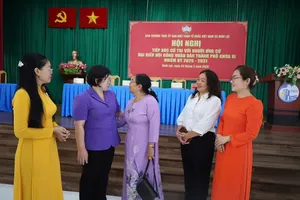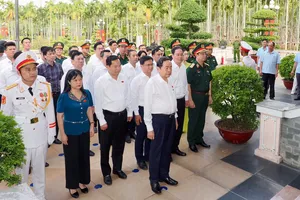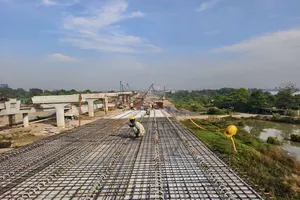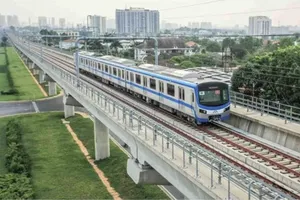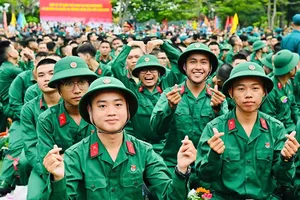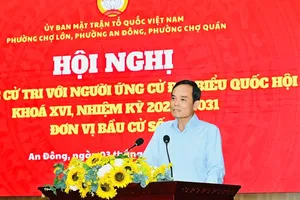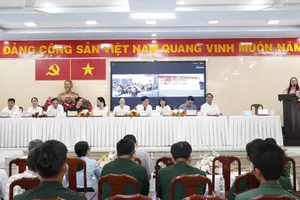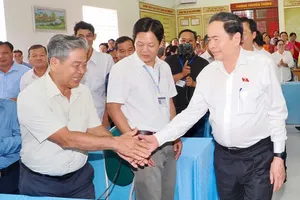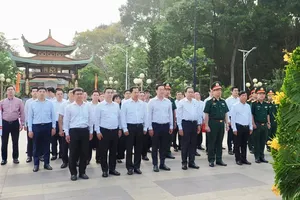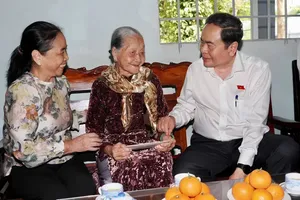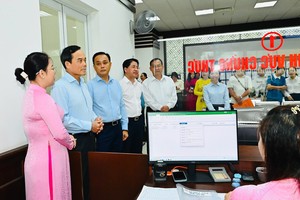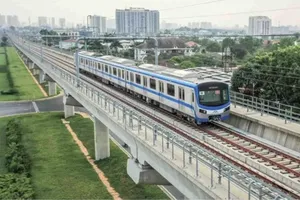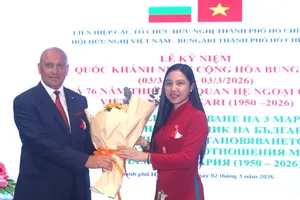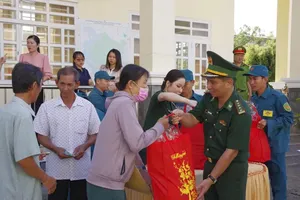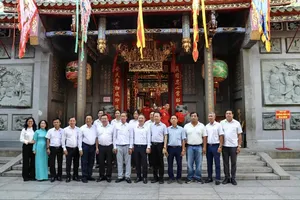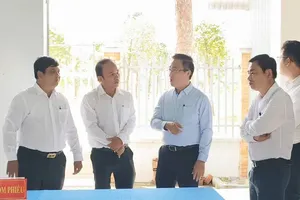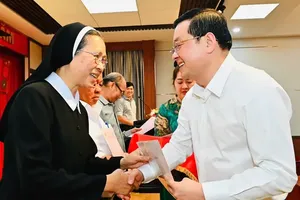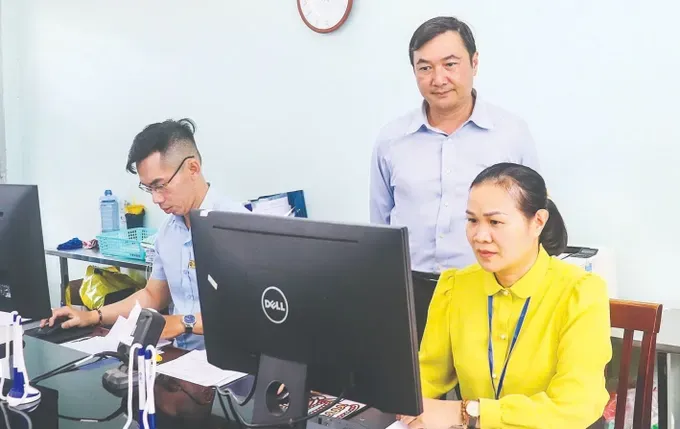
Observing the packed waiting area at the Ben Thanh Ward Public Administrative Service Center while contemplating HCMC’s newly issued, 300-page administrative procedure manual, one civil servant candidly shared, “The pressure is truly immense!”
Officials face a heavier workload and the constant need to update their knowledge of new policies from both central and city authorities, all while many are still navigating the unfamiliarity of new positions and responsibilities.
Secretary Hoang Thi To Nga of the Ben Thanh Ward Party Committee acknowledged that the initial post-restructuring period brought a degree of psychological turbulence for staff, largely stemming from fragmented facilities and new operational methods.
To resolve these issues, the Party Committee has proactively organized visits to offer encouragement and has tasked department heads with staying attuned to their teams' morale, enabling swift and targeted responses.
Hiep Binh Ward also reflects certain practical inadequacies. Ward Party Secretary Vu Anh Tuan reported that some staff members are unsettled because their new assignments, allocated from above, do not align with their previous areas of expertise. In response, the local Party Committee is reviewing and adjusting personnel placements to ensure officials are positioned to utilize their strengths and feel secure in their roles.
Beyond work-related pressure, a segment of non-tenured officials harbors anxiety about the mandated end of their employment after May 31, 2026. If unaddressed, this sentiment could impact the quality of public service.
Drawing from his experience in Go Vap Ward, Party Secretary Nguyen Tri Dung asserted that the key to staff stability lies in leadership unity and clear delegation. This must be coupled with tangible care, recognition, and timely problem-solving from the authorities. When individuals feel their roles are respected and valued, they will find peace of mind and continue to contribute effectively in the new environment.
To ensure the new two-tier local administrative units operate smoothly, the Politburo and the Secretariat have issued official Conclusions (No. 176-KL/TW and 177-KL/TW) directing the implementation of key tasks for grassroots party organizations. A crucial requirement emphasized is the need for continuous political and ideological education for all officials and the prompt resolution of any issues arising during the new system's operationalization.
HCMC has operationalized this requirement through numerous practical actions. Top city leaders are conducting direct field surveys to listen to grassroots concerns, rigorously underscoring the need to monitor staff morale and promptly address issues to ensure officials can work with peace of mind.
This high-level directive has spurred local authorities into action. For instance, Hiep Binh Ward held an awards ceremony to boost morale, Ben Thanh Ward is renovating its headquarters to improve the work environment, and Go Vap Ward has organized dialogues and clarified regulations to help staff adapt. These concrete steps demonstrate a commitment to supporting the workforce through this significant transition.
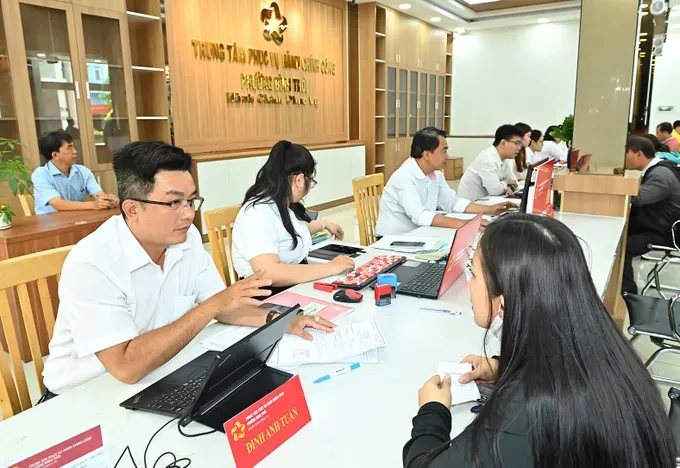
Ensuring ideological stability during this period of administrative reorganization is not merely a situational necessity; it is the sustainable foundation for building a high-performing, effective, and efficient government apparatus. Retaining officials, especially talented ones, is not just about salaries and benefits, but more crucially, about securing their trust and peace of mind.
Therefore, every local Party organization and government must champion the role-modeling of its leaders, ensure transparency in organizational arrangements, assign tasks clearly, evaluate fairly, and proactively identify and appropriately place capable individuals, while protecting those who dare to innovate.
Director Pham Thi Thanh Hien of the HCMC Department of Home Affairs shared in her speech at the meeting on HCMC’s socio-economic results for the first half of 2025 that the challenges created among officials and civil servants had been recognized.
HCMC’s territory is now vast, leading to long commutes, and some workplaces are still inadequate. This exposes real difficulties for staff in balancing family life with their new assignments. Her department will advise the HCMC People’s Committee to remain attuned to these aspirations, especially for those with difficult family circumstances. It will advocate for resolving each case individually, aligning assignments with the official’s strengths and the unit’s needs.
Head Nguyen Ngoc Bao Quyen of the Party Building Committee in Hoa Hung Ward informed that the Ward Party Committee and People’s Committee are always proactively monitoring social public opinion and the ideological sentiments of current officials, civil servants, and non-tenured staff.
To date, the morale of the team has largely stabilized. They feel secure, having been placed in suitable roles and work environments. The Ward is also consolidating public opinion monitoring teams and other steering committees to continue gathering feedback and serving the people more effectively.
Dr Ho Ngoc Dang from HCMC Cadre Academy shared that organizational restructuring often brings changes to roles, responsibilities, and authority, which can easily breed psychological instability such as anxiety or disorientation. If not addressed, this can negatively impact morale and organizational effectiveness.
To handle this, it is necessary to devise a synchronized approach, including effective political education and two-way communication channels like periodic dialogues to frankly address legitimate concerns. Any signs of wavering should be identified early and addressed through personalized, official-centric ideological work. Furthermore, it is essential to tighten Party discipline while ensuring that all policies and benefits for affected officials are resolved promptly to guarantee their livelihood stability.
